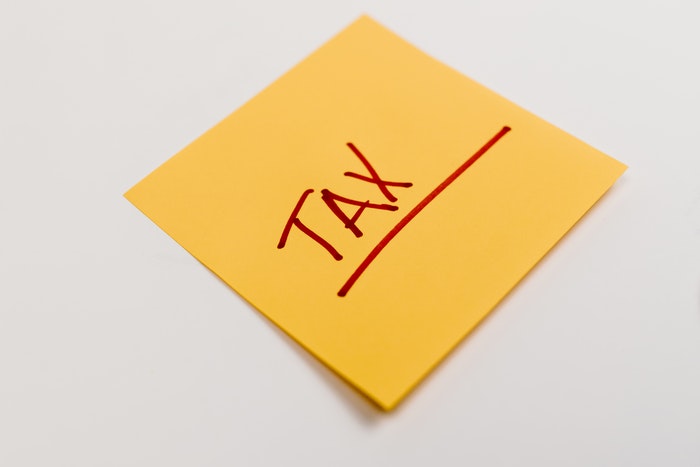Don’t let the name fool you: Though sales tax holidays give consumers a break from sales tax, they generally mean more work for retailers.
What is a sales tax holiday?
A sales tax holiday is a time when state and/or local sales tax doesn’t apply to transactions that are otherwise taxable. They commonly last one day, one weekend, or one week, but they can be longer. For example, Georgia is midway through a sales tax holiday for admissions that began July 1, 2021, and will conclude December 31, 2022.
The approximately 17 states that typically offer tax-free periods each year do so for a variety of reasons. For example, the extended sales tax holiday for admissions currently underway in Georgia was designed to help an industry hit hard by the pandemic. Tennessee temporarily exempted certain food sales during the summers of 2020 and 2021 for a similar reason: to boost sales at businesses adversely affected by COVID-19 while allowing consumers to keep tax dollars in their pockets.
That said, most sales tax holidays stick to one of the following themes:
- Back-to-school (clothing, computers, school supplies)
- Disaster preparedness (supplies that can help residents weather a storm)
- Energy efficiency (energy-efficient appliances and products)
- Second amendment (hunting supplies and guns)
Why are sales tax holidays hard for retailers?
Sales tax holidays are challenging for retailers for a host of reasons; three stand out:
- Sales tax holidays are held at different times in different states
- Sales tax holidays apply to some transactions but not others
- Local sales tax applies to some qualifying transactions in some states, but not others
- Sales tax holidays are held at different times
While the variability of sales tax holidays is part of their charm for consumers — they’re a delightful break from the everyday grind of paying sales tax — the fact that sales tax holidays occur in different states at different times is a burden for retailers doing business in multiple states.
The best-case scenario for businesses is when sales tax holidays take place at the same time each year (e.g., the last weekend in February or the first full weekend in August), but even this comes with challenges. Though nine states will offer a sales tax holiday during the first weekend of August 2022, some of the sales tax holidays will start and end on different dates. The tax-free periods in Missouri, New Mexico, Ohio, Oklahoma, South Carolina, and Texas will run August 5–7, but the Arkansas holiday is August 6–7, while Iowa’s is August 5–6, and West Virginia’s August 5–8.
Furthermore, lawmakers in some states prefer one-time sales tax holidays (even if they typically have one year after year). Florida often provides a back-to-school sales tax holiday during the summer and a disaster preparedness tax-free holiday in the spring, but you can’t plan for these in advance because the Sunshine State may not offer any sales tax holidays. Then again, it could decide to exempt or partially exempt a host of different products, as it did during its unparalleled 2021 Freedom Week.
Massachusetts used to have a habit of offering a one-time tax-free period at the last minute. In 2018, for example, a sales tax holiday was signed into law one day before it began. Businesses had little time to learn the holiday was a go, much less adjust point-of-sale systems or train staff to not charge tax on qualifying sales.
The year following that debacle, Massachusetts transitioned from periodic one-time sales tax holidays to a recurring, annual tax-free period. However, the legislature must set the date each year, so while retailers know it’s coming, they don’t know exactly when.
Florida still operates on an ad hoc basis, and you never know what other states may decide to offer a sales tax holiday in any given year. Already this year, bills seeking to establish a sales tax holiday have been introduced in California, Indiana, Rhode Island, and Washington.
Retailers selling affected goods into states with sales tax holidays need to know when to charge sales tax, when not to, and which products are covered by the temporary exemption. The last point can be extremely challenging.
- Sales tax holidays apply to some transactions but not others
In most states, sales tax holidays exempt specified products only. For example, handbags and jewelry qualify for the Arkansas sales tax holiday that runs August 6–7, 2022, but not for the Iowa tax-free period held August 5–6, 2022. If your business sells handbags or jewelry, you’ll need to know where you cannot collect sales tax as usual, and where you must.
Price restrictions must also be considered. Most sales tax holidays have a price cap, so while products priced at or below the threshold are exempt, products priced above the threshold remain subject to sales tax. Ohio’s sales tax holiday applies to clothing and footwear priced $75 or less, while Connecticut’s tax-free period for clothing and footwear exempts qualifying items priced less than $100.
One exception to the price cap rule is South Carolina, where the annual sales tax holiday has no price restrictions.
- Local sales tax applies to some qualifying transactions in some states, but not others
During a sales tax holiday, qualifying transactions are typically exempt from all applicable sales taxes— state, local, and special option. That’s the law of the land in Mississippi, Tennessee, Texas, and many other states.
However, Alabama and Missouri allow local jurisdictions to opt out of the states’ sales tax holidays. In nonparticipating jurisdictions during a sales tax holiday, retailers must collect local sales tax but not state sales tax; in participating jurisdictions, retailers collect neither state nor local sales tax.
It’s best practice to verify which local taxes should be collected and which shouldn’t, because some jurisdictions may participate on a limited basis. In this case, the sales tax holiday applies to a portion of the local tax but not the full local tax.
Further complicating compliance, last-minute taxability changes can occur in states where local participation is optional.
In Alabama, local governments wishing to participate in a sales tax holiday must adopt an ordinance or resolution to that effect at least 30 days prior to the event then notify the Alabama Department of Revenue, which publishes a list of participating local governments. Unfortunately, some local governments wait to announce their participation until mere days before it’s scheduled to occur.
In 2022, for example, the towns of Black and Warrior didn’t let the Alabama Department of Revenue know whether they’d be participating in the February 25–27 disaster preparedness sales tax holiday until February 22, 2022. And that’s not unusual: There’s usually at least one such last-minute reveal each year.
These are just some of the main reasons sales tax holidays make sales tax compliance even more challenging for retailers. Others include differing policies related to layaway sales, returns and exchanges, and shipping charges — and the fact that sales tax holidays apply to online sales as well as in-store sales.
Sales tax holidays can affect out-of-state sellers
Sales tax holidays once concerned businesses with a physical presence in the state but not out-of-state sellers. That changed when the Supreme Court of the United States issued its seminal decision in South Dakota v. Wayfair, Inc. (June 2018).
The Wayfair ruling overturned a long-standing physical presence rule, allowing states to base a sales tax obligation on economic activity, not just physical presence in a state. After the decision, every state with a general sales tax enacted an economic nexus law requiring remote retailers to register then collect and remit applicable sales tax if their sales into the state exceed a certain threshold (e.g., $100,000 in sales during the current or previous calendar year). Thus, many remote retailers need to understand and comply with sales tax holidays today.
As of this writing, 17 states are scheduled to have least one sales tax holiday in 2022. If your business sells into one of more of these states, consider automating sales tax collection and remittance.

Gail Cole is a Senior Writer at Avalara. She’s on a mission to uncover unusual tax facts and make complex laws and legislation more digestible for accounting and business professionals.




